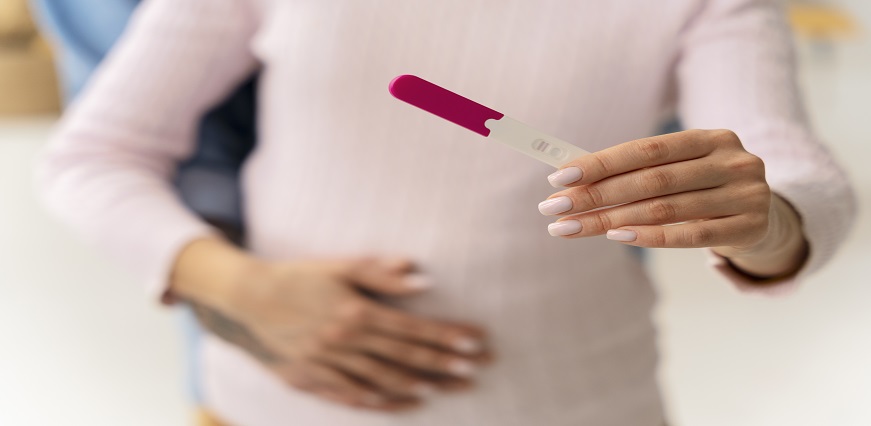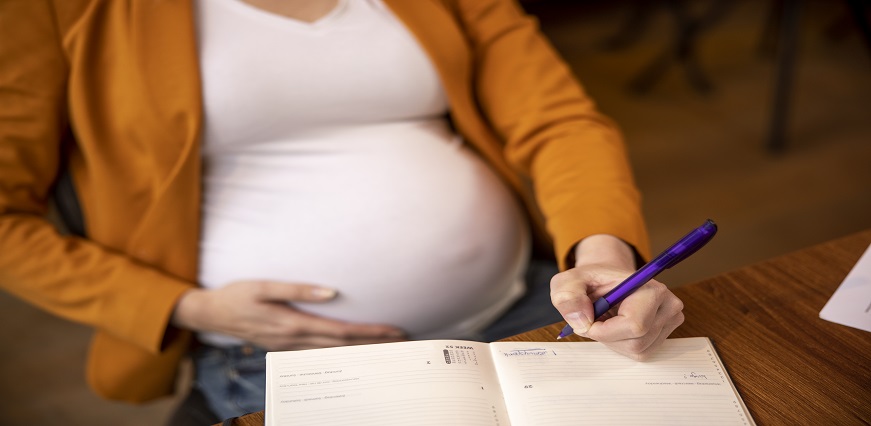





No lab centers are available in this city
Home > Calculators > Ovulation Calculator












Are you trying to conceive or avoid pregnancy? Understanding your ovulation cycle is key! However, tracking it can be a daunting task. Fortunately, with the help of an ovulation calculator, determining your fertile window has become easier than ever before. Here, we will guide you through everything there is to know about ovulation calculators - from what they are and how to use them, to their different types and accuracy levels. Read on for all the information you need!
An ovulation calculator is a tool that enables women to track their menstrual cycle, determine when they are most fertile and predict the best time to conceive. It works by estimating the date of ovulation based on information such as your period start date, average cycle length and luteal phase length.
Using an ovulation calculator can help you to determine the most fertile days of your menstrual cycle. This is particularly useful if you are trying to conceive, as it can increase your chances of getting pregnant.
To use an ovulation calculator, simply enter the first day of your last period and the average length of your menstrual cycle. The calculator will then estimate when you are likely to ovulate based on this information.
It's important to note that while ovulation calculators can be a helpful tool, they are not 100% accurate. Factors such as stress or illness can affect your menstrual cycle and make it difficult to predict when you will ovulate.
If you want a more accurate prediction, consider using additional methods such as monitoring changes in cervical mucus or using an ovulation predictor kit.
There are several types of ovulation calculators available today, each with its own unique features and benefits.
As a woman, it's important to know your body and understand the signs of ovulation. Some common physical changes that occur during ovulation include an increase in cervical mucus, breast tenderness, abdominal bloating, and slight cramping on one side of the pelvis.
Additionally, you may notice a change in your basal body temperature (BBT), which can be measured using a special thermometer each morning before getting out of bed. Your BBT typically rises slightly right after ovulation occurs.
Another way to track your fertility is by using an ovulation predictor kit (OPK). These kits detect levels of luteinizing hormone (LH) in your urine, which surge just before ovulation takes place. When the test shows positive for LH surge, you should expect to ovulate within 12-24 hours.
Pay attention to changes in your sex drive or libido. Many women experience increased sexual desire during their fertile window when they are most likely to conceive.
One of the most important factors to consider when using an ovulation calculator is its accuracy. After all, if you're relying on this tool to help you conceive, you want to be sure it's giving you reliable information.
So, just how accurate are ovulation calculators? Well, it depends on a few different factors. One thing that can affect accuracy is the type of calculator being used. Some use simple calculations based on average cycle lengths and other basic data points, while others take into account more complex factors like hormonal fluctuations and cervical mucus changes.
Another factor that can impact accuracy is the individual variability in women's cycles. While some women have very regular cycles that make it easy to predict ovulation with precision, others experience more fluctuation from month to month which can make prediction trickier.
As we come to the end of this article, it is important to note that an ovulation calculator can be a useful tool for couples looking to conceive or avoid pregnancy. By tracking your menstrual cycle and predicting when you are most likely to ovulate, these tools can help increase your chances of getting pregnant.
However, it is also worth mentioning that no method of contraception or conception prediction is foolproof. Ovulation calculators rely on assumptions about the regularity of your menstrual cycle and may not account for changes due to stress or other factors.





The accuracy of an ovulation calculator largely depends on the information entered into it. If you input your cycle length and period start date correctly, the calculator can give a rough estimate of when you're likely to ovulate.
The answer to this question is both yes and no, One factor to consider is the accuracy of your menstrual cycle information. If you are not keeping track of your periods regularly, then there may be some discrepancies in the calculator's predictions.
Firstly, it's essential to understand that each woman has a unique menstrual cycle length. Typically, ovulation happens around day 14 of a 28-day cycle. However, cycles can range anywhere between 21 and 35 days long.
The duration of ovulation varies from woman to woman but typically lasts 12-24 hours. During this time, the egg is available for fertilization by sperm. However, it's important to note that conception may not occur during every ovulatory cycle.
The first peak is the day before ovulation or when luteinizing hormone (LH) levels surge. The pituitary gland produces LH and triggers ovulation within 12-36 hours after its release. The second peak day is during ovulation itself. This means that if you have sex on either of these days, you have an increased chance of getting pregnant because sperm can survive inside the female reproductive system for up to five days.
Ovulation is the period when a woman's ovary releases an egg for fertilization. It usually occurs around day 14 of a 28-day menstrual cycle. During this time, the chances of getting pregnant are high because the released egg can be fertilized by sperm.
If you are actively trying to conceive, it's best to track other signs of ovulation such as cervical mucus changes and basal body temperature. And if you suspect pregnancy after ovulation, take a home pregnancy test or consult with your healthcare provider.
Sign up takes less than 60 secs and gives you access to your offers, orders and lab tests.
Looks like you are not registered with us. Please Sign up to proceed
OTP will be sent to this number by SMS
We have successfully received your details. One of the agents will call you back soon.
 To reach our help desk call 9213188888
To reach our help desk call 9213188888
No Lab Centers are available in this city
Looks like you are not registered with us. Please Sign up to proceed
OTP will be sent to this number by SMS
Not Registered Yet? Signup now.Looks like you are not registered with us. Please Sign up to proceed





 7982100200
7982100200 Anemia Test
Anemia Test
 Hormone Test
Hormone Test
 Infertility Test
Infertility Test
 Iron Test
Iron Test
 Pregnancy Test
Pregnancy Test
 Women Health Test
Women Health Test
.png)